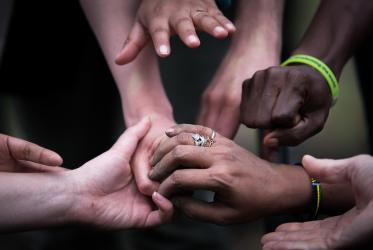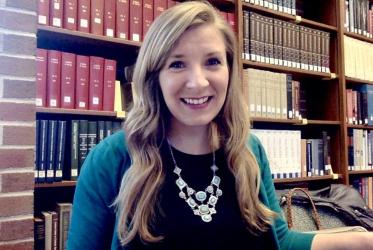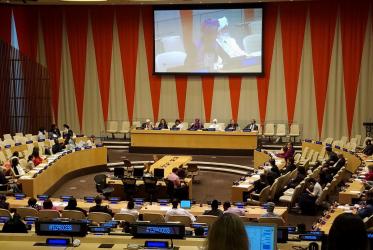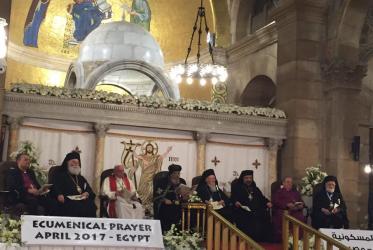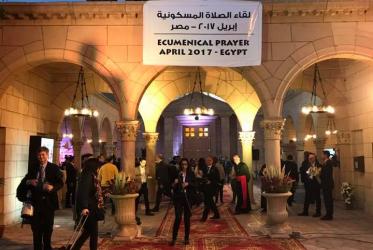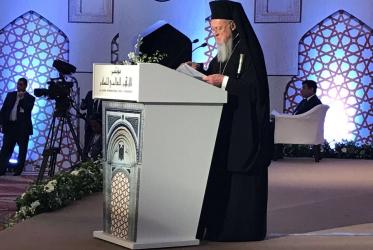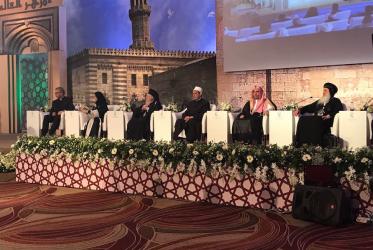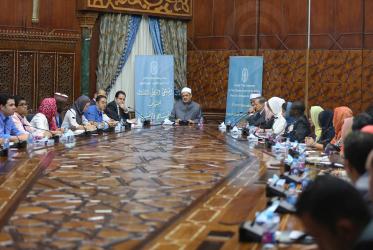Displaying 1 - 20 of 37
12 September 2019
Peacemakers at work in Sri Lanka
29 April 2019
"Diversity" documentary reflects on maze of self-identity in Canada
27 September 2018
Paving the way for ecumenical studies, learning English in Bossey
24 September 2018
Faces of Hope raises awareness
07 March 2018
G20 summit: call to pray for peace in Hamburg
07 July 2017
Women in development create space for hope in Egypt
15 June 2017
‘Love is stronger than hate’
02 May 2017
Historic ecumenical prayer in Egypt for peace and unity
30 April 2017



